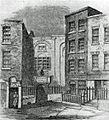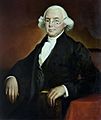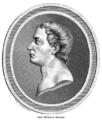1742 facts for kids
The year 1742 was a time of many important changes and events around the world. From new leaders taking power to big discoveries in science and art, it was a busy year!
| Millennium: | 2nd millennium |
|---|---|
| Centuries: | 17th century – 18th century – 19th century |
| Decades: | 1710s 1720s 1730s – 1740s – 1750s 1760s 1770s |
| Years: | 1739 1740 1741 – 1742 – 1743 1744 1745 |
Contents
Key Events of 1742
New Leaders and Politics
- On January 24, Charles VII Albert became the Holy Roman Emperor. This was a very important title in Europe, like being a powerful leader over many lands.
- On February 16, Spencer Compton, who was the Earl of Wilmington, became the Prime Minister of Great Britain. This meant he was the main leader of the British government.
- A political scandal happened because of how an election was handled in a place called Chippenham.
- William Pulteney was given the special title of the 1st Earl of Bath.
- Robert Walpole, who had been a very important politician, moved from the House of Commons to the House of Lords. This was a big change in his political career.
- John Carteret, 2nd Lord Carteret became the Secretary of State for the Northern Department, a key role in the British government.
- In Norway, the town of Molde officially became a city.
Battles and Conflicts
- On February 18, British forces attacked a place called La Guayra.
- On May 17, the army of Frederick the Great defeated the Austrians in a battle at Chotusitz. After this, Austria gave up a region called Silesia to Prussia.
- Another battle was fought at Sahay on May 25.
- The Kingdom of Prussia captured the city of Jihlava.
- In Peru, a person named Juan Santon called himself Atahualpa II and started a rebellion against the Spanish rulers. This rebellion did not succeed.
- In Afghanistan, different tribes came together and formed a monarchy, which means they united under one king.
Science and New Ideas
- The famous mathematician Christian Goldbach came up with a puzzle called Goldbach's conjecture. It's a math problem that is still being studied today!
- Colin Maclaurin published his book called Treatise on Fluxions, which was an important work in mathematics.
- Anders Celsius suggested a new way to measure temperature, which is now known as the Celsius temperature scale. You probably use it in science class!
- James Bradley took over from Edmond Halley as the Astronomer Royal. This was a very important job for studying the stars and planets in Britain.
Art, Culture, and Education
- On April 13, the very first performance of George Frideric Handel's famous music piece, Messiah, took place in Dublin.
- Henry Fielding published his book Joseph Andrews, which was a popular novel at the time.
- The University of Erlangen was founded, creating a new place for learning and study.
- Construction began on the Foundling Hospital in London. This was a special place built to care for children who needed help.
- In Eisenach, a city in Germany, work started on its Stadtschloss, which means "city castle."
- The newspaper The Pennsylvania Journal was printed for the first time on December 2.
Other Notable Events
- Daniel le Pelley became the new leader, or Seigneur, of Sark, taking over from Nicolas le Pelley.
- There was a political event called the Lopukhina Conspiracy at the Russian court, which involved secret plans and disagreements among powerful people.
Images for kids
See also
 In Spanish: 1742 para niños
In Spanish: 1742 para niños
Black History Month on Kiddle
African-American Astronauts:
 | Stephanie Wilson |
 | Charles Bolden |
 | Ronald McNair |
 | Frederick D. Gregory |

All content from Kiddle encyclopedia articles (including the article images and facts) can be freely used under Attribution-ShareAlike license, unless stated otherwise. Cite this article:
1742 Facts for Kids. Kiddle Encyclopedia.






